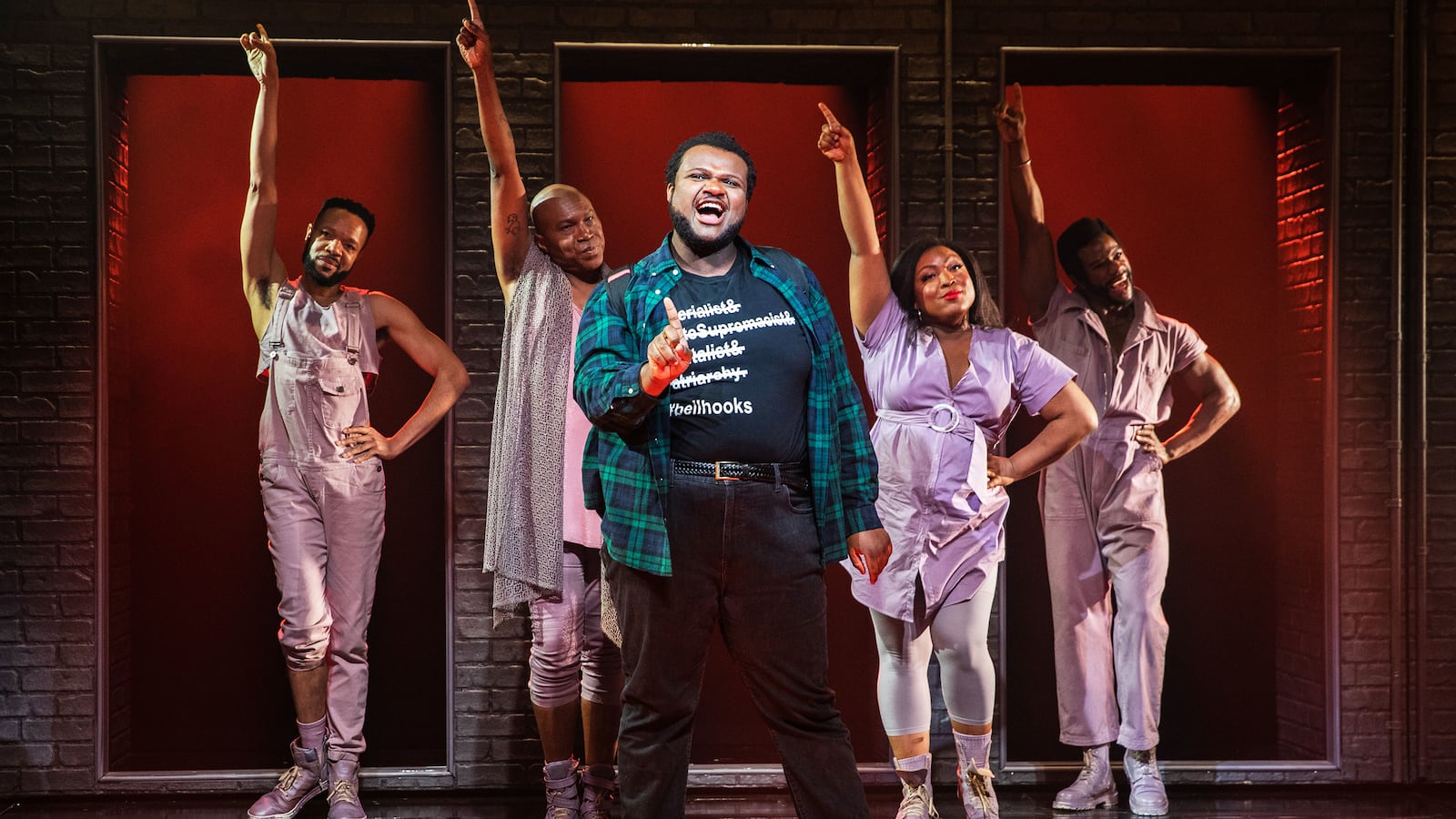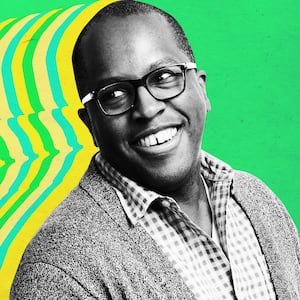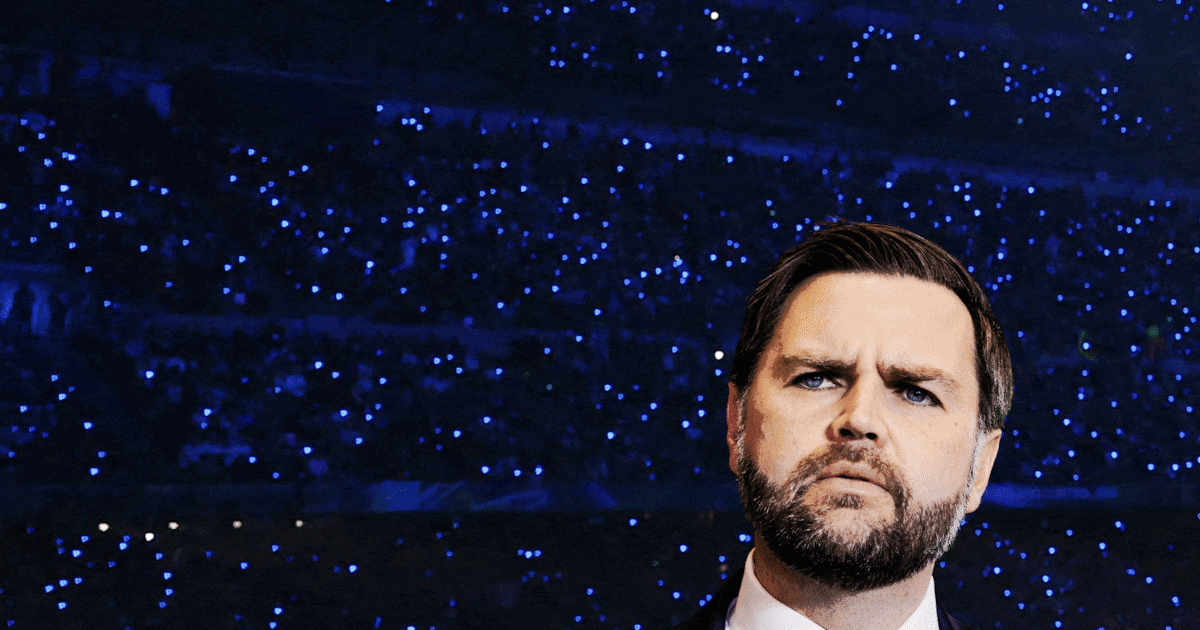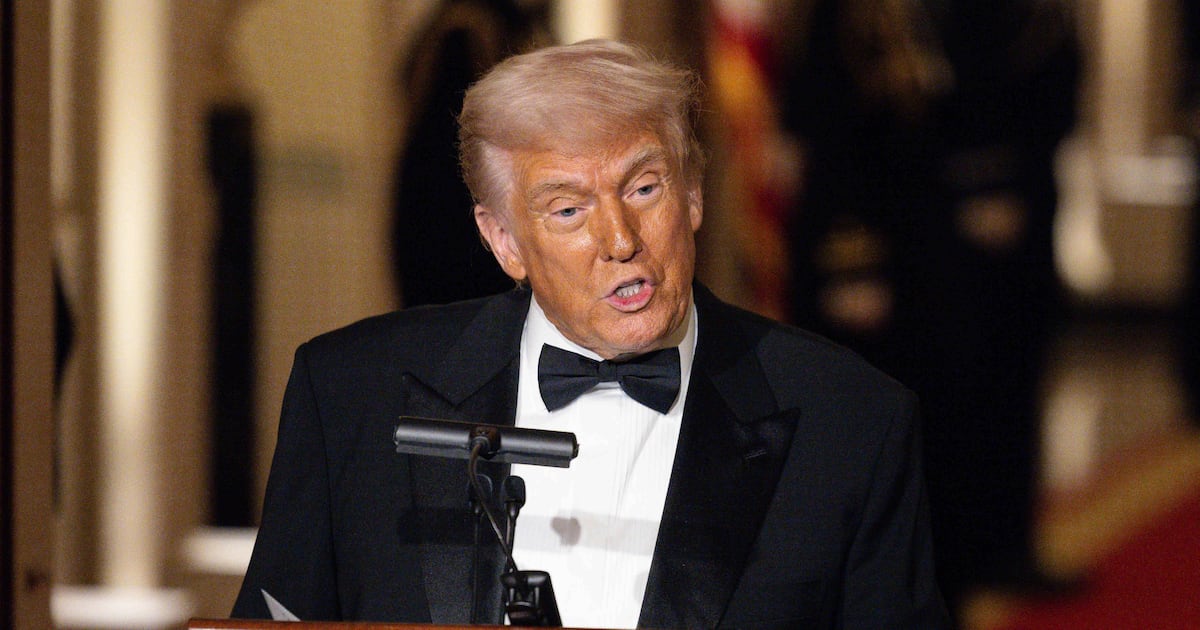Part of the joy of watching the Pulitzer Prize-winning A Strange Loop on Broadway is precisely because of where we are sitting and what we are watching: this show, about the life and thoughts of a creative, questioning young queer Black man, is being performed right here right now (at the Lyceum Theatre, booking to September 4) in front of a Broadway audience. The fact this reporter saw this one night, and the next day Billy Crystal in Mr. Saturday Night, hopefully says something about what an evolving ecology of Broadway can look like.
The words of its creator Michael R. Jackson, whom The Daily Beast interviewed in July 2019 when the musical was playing off-Broadway at Playwrights Horizons, are channeled through Jaquel Spivey who has taken on the role as lead character Usher, wanting “to show what/It’s like to live up here/And travel the world in a/Fat, Black queer body.” For around 100 minutes an audience watches as Usher questions everything around him: racism, sexuality, family, coming out, success, his body, attractiveness, ambition, religion, and trauma (and I’ve probably forgotten something; so let’s just amend that to *everything*).
And besides the extremely moving, searing stuff... it also features the best, most show-stopping reincarnation of a celebrity ever.
A Strange Loop is a show that poses one question, then goes down another set of rabbit holes about that question, with both biting wit and brutal analysis, self and otherwise. Usher, a theater usher as Jackson himself once was at The Lion King, thinks he’s too fat to be desirable. He wants to write a musical truthful about his experience as a Black queer man, not meet the cultural expectation that such a work be about slavery, or police brutality, or intersectionality. His parents do not accept his homosexuality. Usher does not want to write the musical that Broadway and off-Broadway producers want him to write. He cannot stand Tyler Perry and everything Tyler Perry stands for; and Beyoncé stands castigated too.
He is having bad sex for bad reasons, objectifying white men as they objectify him. Usher’s experience and life are harsh, and his tendency to self-denigrate is both painful to watch, and also intensely true and a genuine challenge to the audience so used to characters finagling, in many cases implausibly, their way out of pain for their own dramatic salvation and our own comfort. The defiance in the musical and the defiance of the musical work is in sharply exquisite tandem; to add to that Pulitzer, let there be Tony Awards.
A Strange Loop is a musical about discomfort and not belonging, and not getting to where you want to be, and things maybe not working out—but always searching, always inquiring, always confronting. The bravery of Usher, and of the musical, is in its chief character’s relentless quest for not the truth, but his truth.

As the musical goes on, we are aware that Usher feels eternally, grindingly trapped. The “strange loop” of the title, as Jackson explained in his off-Broadway program note, was created by cognitive scientist Douglas Hofstadter to “theorize the self as merely a collection of meaningless symbols mirroring back on their own essences in repetition until death. He further theorized that a human being is the organism with the greatest capacity to perceive itself perceiving itself, ad infinitum.”
“Strange Loop” is also the title of a song by Liz Phair (whose music Jackson has long loved, he told me in 2019, particularly the 1993 album Exile in Guyville), and for a time—when the musical was first called Fast Food Town—Jackson had been trying to get permission to use her songs in the play. Then he read about Hofstadter’s theory, “which was weird. I hadn’t realized I had been writing about the theory the whole time. I changed the title.” There is a brilliant song about the guilty pleasure Usher takes in the behavior and power-wielding of the “white girls” he and Jackson are fascinated by. (Jackson has written a musical inspired by them, White Girl in Danger.)
When we spoke Jackson also invoked W.E.B. Du Bois’ idea of “double consciousness” to describe the uniquely African-American experience of “always looking at one’s self through the eyes of others, of measuring one’s soul by the tape of a world that looks on in amused contempt or pity.”
Stephen Brackett, the show’s director, has crafted a scaled-up version of what those who fortunate to have seen the show in 2019 may remember; Arnulfo Maldonado’s sleek, illuminated set features little doorways and corridors out of which pop his innermost thoughts and extremely opinionated inner demons, played (with great humor and in great voice, and with great moves choreographed by Raja Feather Kelly) by Antwayn Hopper, James Jackson Jr., L Morgan Lee, John-Michael Lyles, John-Andrew Morrison, and Jason Veasey.
These magnificently catty anti-cheerleaders have a lot to say about Usher still being an usher at The Lion King (just as Jackson himself was in his 20s), about his sleeping with older white men, and what he gets from that and what he absolutely doesn’t, and what he really from a Black queer partner. There is the unwritten musical, the unmet ambitions, the loathing and embracing of his body shape, and the specter of AIDS and religion—which ultimately explodes in the musical’s most striking visual and musical moment. This is also a moment that crystallizes the musical's dedication to a Darius Marcel Smith, and “all those Black gay boys I knew who chose to go on back to the Lord.”
As with so many other moments in A Strange Loop, the rousing gospel music at the moment is taking the mind to one place while the words being said head in another, darker direction. When the song finishes, the voices challenge Usher again about what on earth he is doing writing it.

A Strange Loop is not an easy musical, and it does not chart an easy path. “Uncompromising” is typically a lazy adjective applied to cultural works with hot-button themes, and some neatly placed dirt under characters’ fingernails. A Strange Loop really is uncompromising. Usher is not that happy, not optimistic, sometimes not very nice. He doesn’t say the right things about being queer, being Black, or about sexual desire. He says difficult things that are true for him. He is a difficult person. In being so, we come to know him as Usher, rather than a stage stereotype.
Usher’s pain only partially alleviates as the musical goes on. The concluding genius of A Strange Loop is, as per its title and thesis, is that it doesn’t offer a neat ending for Usher. By the end he is not triumphant, but he is also not a bedraggled heap on the floor. He’s a human in process, in a world in process. In being crafted so individually, Usher emerges as the most bruised and honest Broadway hero on stage right now, taking a Broadway audience on an equally honest and bruising journey. That makes for another strange loop perhaps, and also a necessary and welcome one.







